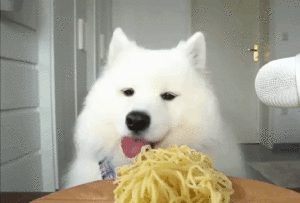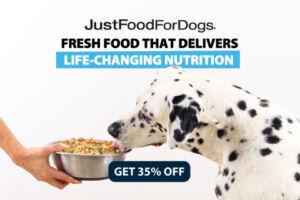Dog feeding requires a lot of care. Therefore, it is important that every tutor has in mind what foods are most suitable for his pet, as well as knowing what the dog cannot eat.
A common situation, for example, is wanting to offer our friends a different food. At these times, dog-friendly snacks, like the ones you find at Petz, are a great help. But what about that little piece of cake or biscuit we are eating, could it also be given to the pet?
Find out below what a dog can’t eat and what certain foods cause his health!
Want to find out how much to feed your dog? Click here!
What a Dog Can’t Eat: Prohibited Foods
Anyone who is in love with pets knows how hard it is to resist when they look at us with that prickly face. But believe me: depending on what you’re eating, there are good reasons to resist temptation.
That’s because a number of foods suitable for our consumption can be toxic to dogs, even when consumed in small amounts!
So, the time has come to find out if a dog can eat chocolate, fruits, sweets, snacks and many other ingredients consumed by us.
Among the prohibited foods are garlic and onions, as well as chocolate and coffee. For the unsuspecting who think that a dog can eat grapes, it’s good to keep an eye out. Fruit should be left out of the hairy menu, both fresh and dried.
By the way, star fruit, avocado and macadamia nuts are also some of the fruits that dogs cannot eat. It is recommended to avoid serving fruit seeds (apple, watermelon, etc).
Depending on the amount ingested and the sensitivity of the pet, the foods mentioned above can cause intoxication, among other serious conditions, such as heart and kidney problems. So keep your friend away from them at all times!
More Food Than Dog Can’t Eat
When it comes to what a dog cannot eat, many guardians already know the list of foods prohibited due to their toxicity. However, many other seemingly harmless foods should also be avoided.
If you’re wondering if a dog can eat candy, be careful. Sugary or ultra-processed foods such as cakes, biscuits, sweets (even without chocolate) and frozen foods cannot be offered to the furry.
In this sense, the veterinarian says that many dogs can present vomiting and diarrhea when ingesting food they are not used to.
“The ingestion of fatty foods can also lead to pancreatitis, an inflammation of the pancreas that greatly harms the pet’s health”, warns the specialist.
“In addition, there is a risk of obesity, which is considered a disease and can cause serious harm to the animal. These are cases of joint problems, diabetes, predisposition to heart problems and breathing difficulties”, he adds.
Pay attention to open bins and food on the floor!
Several tutors have already gone through this unpleasant situation. After a party or barbecue at home, the pet begins to feel sick, with vomiting and diarrhea.
This is because, on these occasions, it is common for unsuspecting visitors to offer a variety of foods for the dog. Not to mention the foods that fall on the floor or that keep giving soup in the trash.
When the event includes toxic food for the dogs, talk to the visitors to pay extra attention. Depending on the situation, it’s better to leave the pet out of the party than to run the risk of it getting food poisoning.
“The dog can eat the food and steal the food from the garbage or that has fallen on the ground”, reinforces the veterinarian. “But what we see most are people themselves offering food to pets.”
Remember that even non-toxic foods can be very bad for your dog’s long-term health. When in doubt, talk to a veterinarian.
If you liked the tips, leave a comment! I’d love to hear from you!





Leave A Comment